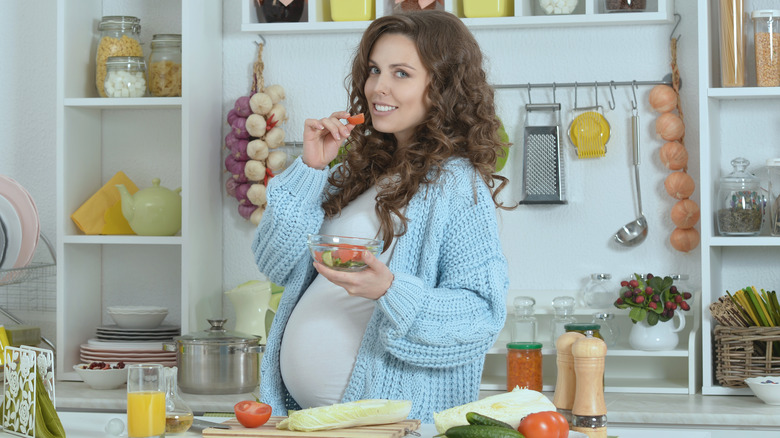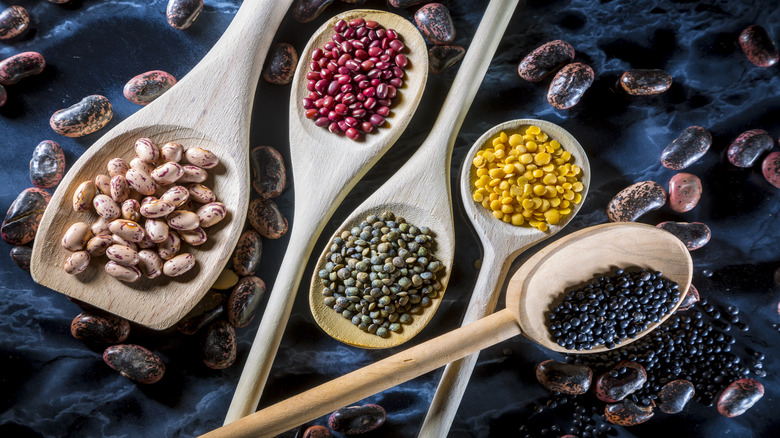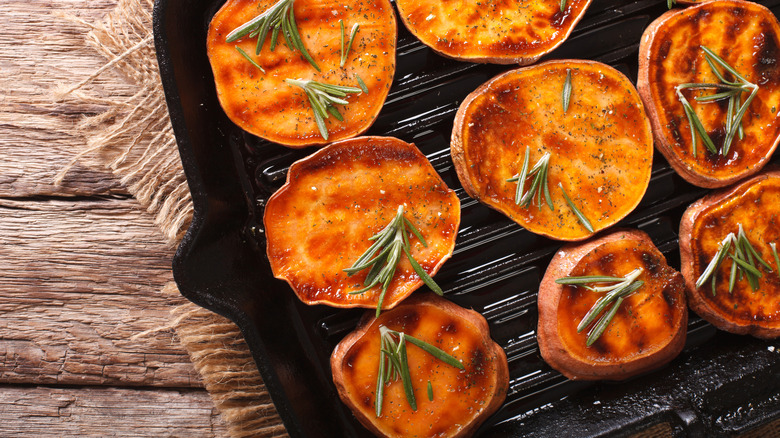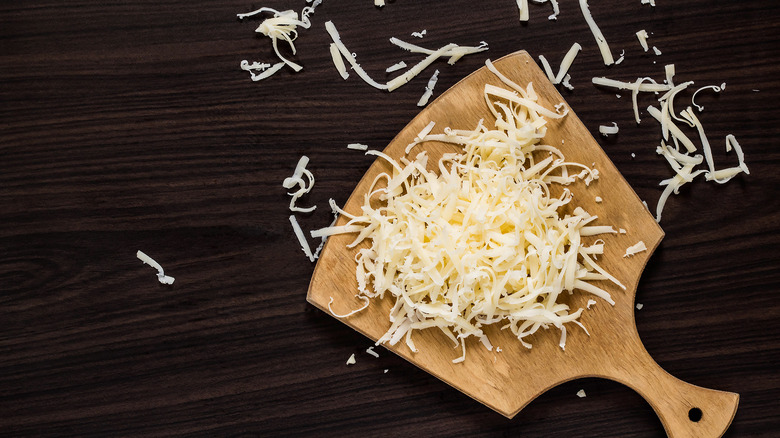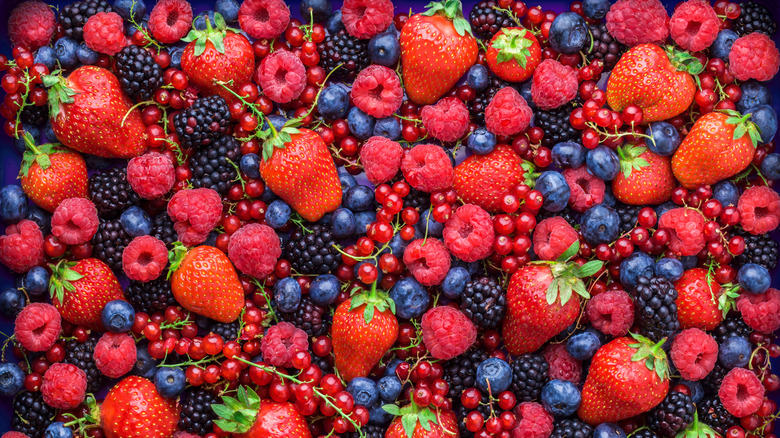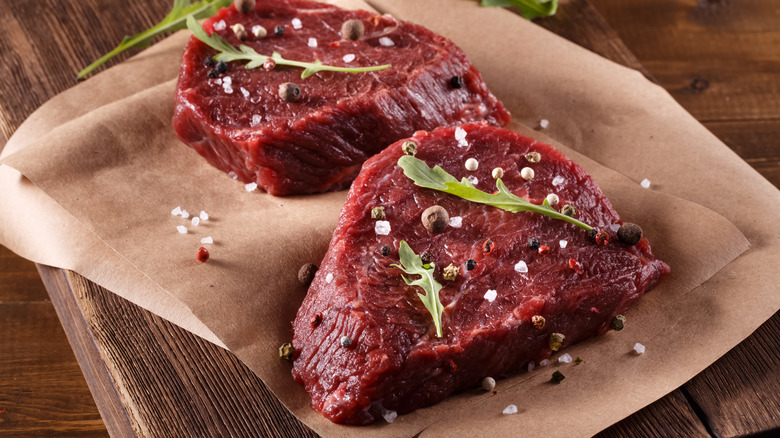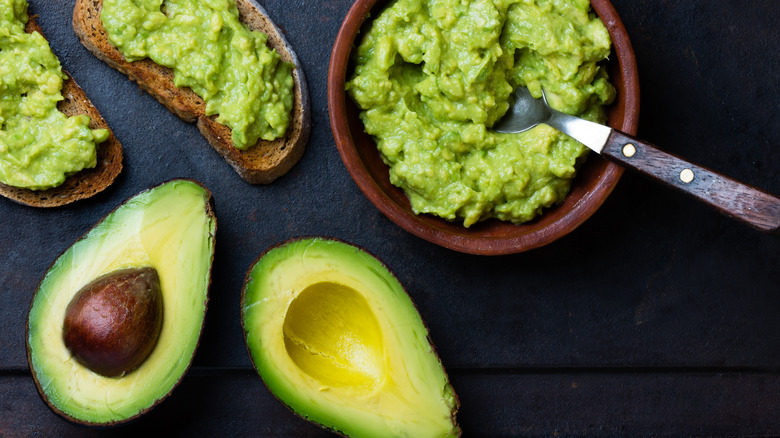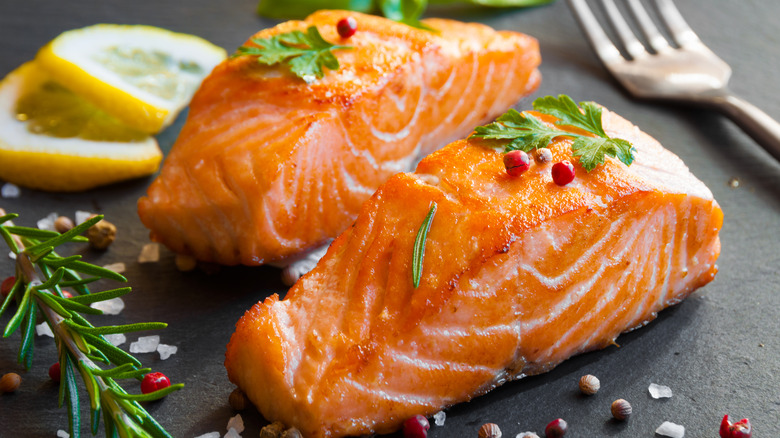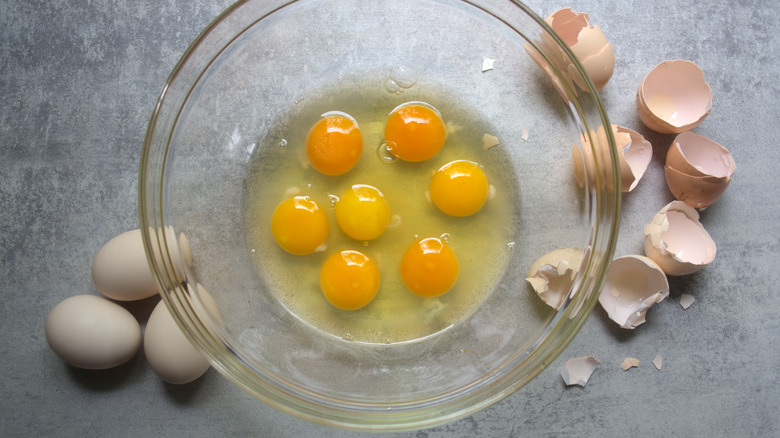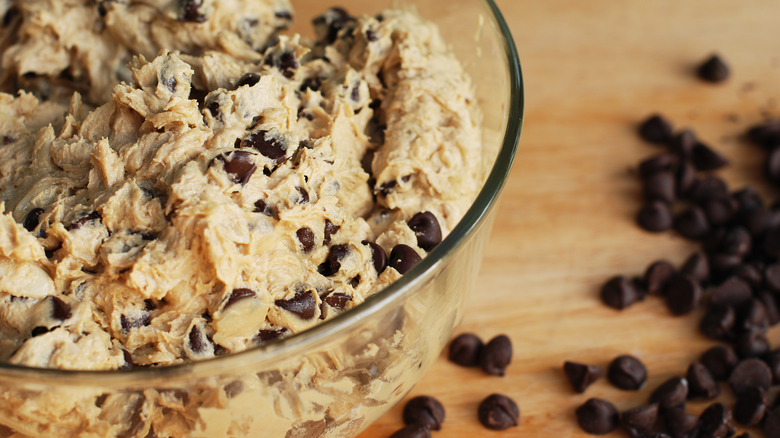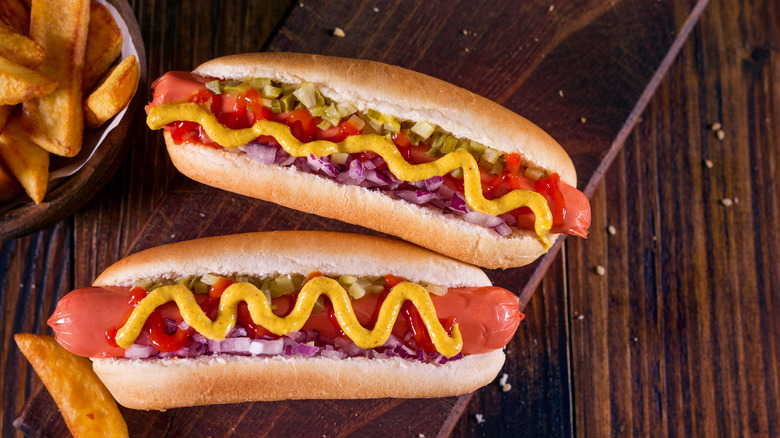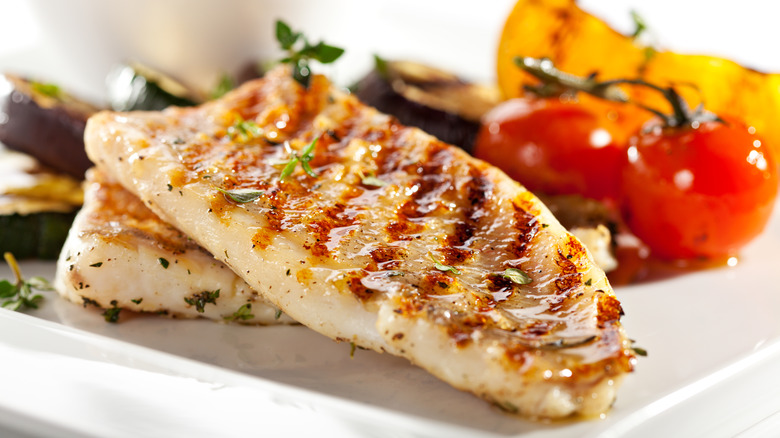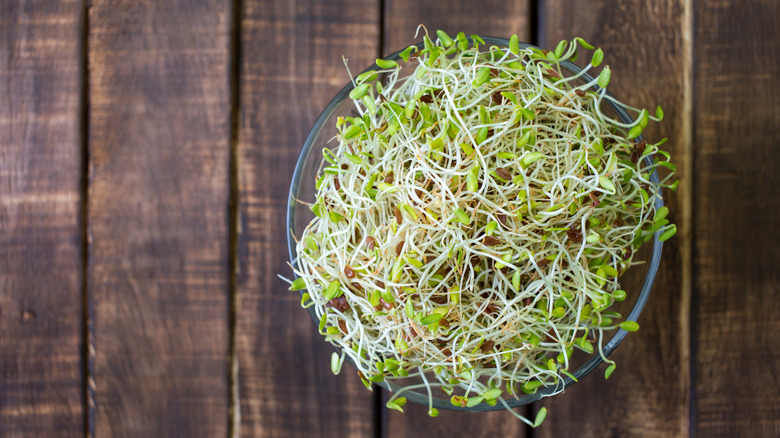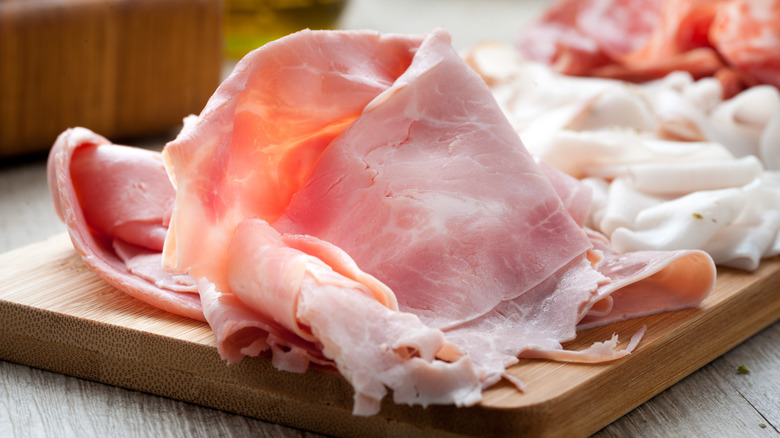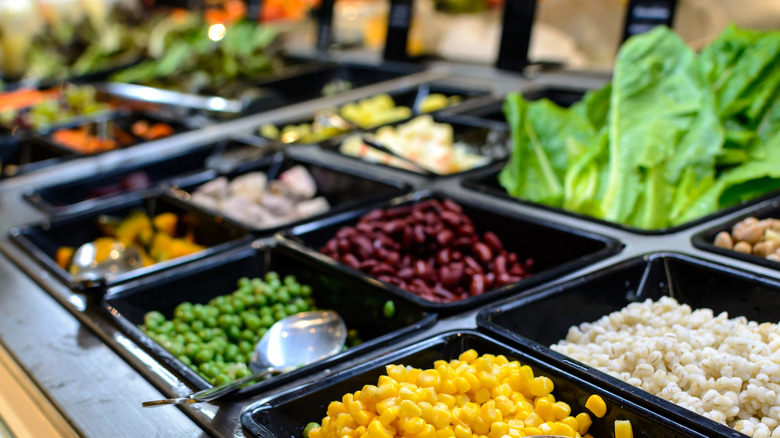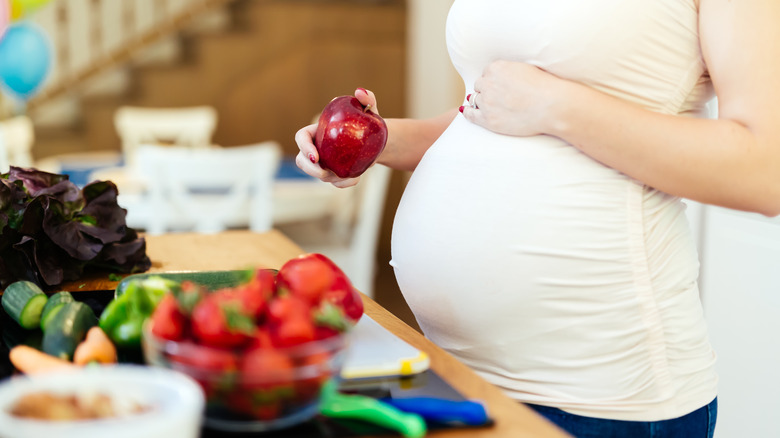7 Foods You Should Be Eating While Pregnant And 7 Foods You Shouldn't
When you're pregnant, you get all kinds of advice — some you should follow quite strictly, some that you probably don't need to follow to the letter, and some you're probably better off ignoring. You get it everywhere you turn: from your doctors, midwife, doula, partner, parents, friends, the media, and even well-meaning, but sometimes rude strangers.
Said advice can encompass everything from the best activities for you to engage in throughout your pregnancy and what kind of medical care you need, to what kinds of baby equipment you need, and even what kinds of foods to eat, and which ones you should avoid over those nine months.
Given that you likely don't want to do or consume anything that could negatively impact your health or the health of your not-yet-born baby, chances are, you'll follow at least some of that advice. Food can be a confusing topic for most of us, pregnant or not, so you may find yourself needing some guidance. When it comes to what you should and shouldn't eat while pregnant, here's what you need to know — straight from the experts.
Should: Beans and lentils
Beans and lentils are great choices all the time, but especially when you're pregnant. These legumes are high in a nutrient called folate, which, as René Ficek, a dietitian and the lead nutrition expert at Seattle Sutton's Healthy Eating tells me, is essential when it comes to preventing birth defects like spina bifida. Not only that, but they are also high in fiber, which can prevent constipation, a common complaint from pregnant women, and a vegetarian source of protein, which helps you feel full. Beans and lentils of all kinds, chickpeas, and even peanuts all fall under the legumes category. Swap out meat or just add some of these veggie proteins to get your fill of these important nutrients.
Should: Sweet potatoes
Sweet potatoes are delicious and versatile. They're a definite "yes" for pregnant moms-to-be, according to registered dietitian Tina Topalian. Sweet potatoes are full of beta-carotene, which the body can convert into vitamin A. Topalian tells me, "Vitamin A is a particularly important nutrient for pregnant women, as they're advised to increase intake by up to 40 percent." Vitamin A is both important for your health and for your baby's growth over the course of the pregnancy.
Should: Cheese
You have to be a bit careful when it comes to which cheeses you eat while pregnant — soft cheeses and anything that might have been made with unpasteurized milk is a no-go — but that doesn't mean that you have to forgo it all for the duration of your pregnancy. In fact, according to Ficek, cheese can be something that you should eat while pregnant. "Calcium, phosphorus, and magnesium are critically important nutrients for a little one's growing skeleton," Ficek says. "Cheese and other dairy products are chock full of these nutrients. It is important to get at least three servings per day to ensure adequate amounts needed for both mom and baby."
To make sure the cheese you want to eat is safe, Ficek says, check the ingredient list on the package for pasteurized milk — if it's labeled, it's safe to eat while pregnant.
Should: Berries
Like many of the other foods on this list, berries are a good addition to pretty much any meal (especially dessert). "[Berries are] excellent sources of vitamin C, fiber, antioxidants, and have a low glycemic index, which translates to steady blood sugar levels," says Topalian. Add them to your morning cereal, oatmeal or yogurt, eat them on their own for a mid-morning or afternoon snack, blend them into a smoothie or milkshake, the possibilities are seemingly endless.
Should: Lean beef
You may be surprised to see lean beef among foods that you should eat while you're pregnant, but it serves an important purpose. Meats, like lean beef, contain iron, which is super-important, especially when you're pregnant. Iron is easy for your body to absorb from meat sources, which makes it a good choice to eat a couple of times a week while pregnant, according to Ficek. Additionally, beef in particular is also high in protein, vitamin B6, vitamin B12, niacin, and choline, which helps promote brain development, Ficek says. If you decide to eat beef while you're pregnant, opt for lean cuts, which give you all of those good benefits, without too much of the unnecessary saturated fat also characteristic of red meat like beef.
Should: Avocados
Avocados are more than a little trendy right now (dare I say they're "the new kale?"), but pregnant women should be eating them for reasons other than their popularity. According to Topalian, avocados contain monounsaturated fatty acids, copper, folate, potassium, vitamin K, vitamin E, and vitamin C, all of which support the developing baby's skin, brain, and fetal tissue. You can eat them for breakfast, lunch, dinner, snacks, and even desserts. They add a dose of healthy fat to sandwiches, salads, main dishes, tacos, wraps, toast, and pretty much anything else you can imagine.
Should: Salmon
Salmon is yet another food that pregnant women should eat. "Healthy fatty acids like Omega 3 fatty acids promote brain development and vision in babies. And fish like salmon have the highest concentration of this nutrient. Vegetarian sources of Omega 3 fatty acids include walnuts, flax seeds, and chia seeds," says Ficek. Make sure you cook the salmon well enough, just in case, and then eat it on it's own or add it to salads, wraps, sandwiches, breakfast scrambles, and more.
Shouldn't: Undercooked eggs
One food that could be dangerous for pregnant women to eat — and so should be avoided — is undercooked or raw eggs. Natalie Allen, a registered dietitian and clinical instructor of dietetics at Missouri State University, told me that raw eggs can hide in some salad dressings, so it's a good idea to check the ingredients to make sure it's safe. Cook your eggs until you're sure they're cooked through, as well, to prevent any potentially-dangerous food borne illnesses.
Shouldn't: Raw dough or batter
Cookie doughs and cake/brownie batters are oh-so-tempting, but you really should try not to eat them while you're pregnant. According to registered dietitian Elizabeth M. Ward, who penned an article for WebMD, these products, whether homemade or store-bought, could contain any number of bacteria, parasites, or viruses, which could cause food borne illnesses that would affect your health and the health of your baby. Some bacteria that cause illness in humans can even cause miscarriage, so it's best to avoid them entirely during pregnancy.
Shouldn't: Hot dogs
Processed meats like hot dogs and sausages shouldn't be eaten during pregnancy. According to Dr. Faisal Tawwab, they can be infected with listeria, a bacteria that can cause listeriosis, which, in turn, can, in severe cases, raise the risk that you'll have a miscarriage. Laying off the processed meats while you're pregnant is the safer choice. It'll put your mind at ease, as well.
Shouldn't: Certain types of fish
Some fish, like salmon, can be a good choice during pregnancy due to their nutritional content. That being said, other fish really should be avoided. According to Allen, it's best to talk to your doctor about which varieties of fish are acceptable and which you should stay away from throughout the course of your pregnancy, as recommendations can change depending on your region or new research. Some kinds of fish can contain higher levels of mercury, which can be dangerous for the baby. You'd rather know which are considered okay and which aren't ahead of time.
Shouldn't: Raw veggie sprouts
Veggie sprouts are delicious, but, according to the Food and Drug Administration (FDA), pregnant women should not eat raw vegetable sprouts because they're considered high risk for pathogens that can cause food borne illnesses. Taking the extra step to thoroughly cook the sprouts before eating them is considered a lower risk option rather than eating them raw.
Shouldn't: Lunch meat
According to WebMD, lunch meats are, like hot dogs and sausages, also not a good idea to eat while pregnant. Lunch meats can also cause listeriosis, which can raise your risk of miscarriage, stillbirth, and illness. It's worth noting, however, that in an interview with WebMD, Dr. Michael Lu, professor of obstetrics, gynecology, and public health at UCLA, said that lunch meats can be okay to eat if you heat them up until they're steaming and clearly cooked through prior to eating them. If taking the extra step to cook your lunch meat before making yourself a sandwich seems like too much work, you might want to avoid it altogether until after you give birth.
Shouldn't: Prepared salads/salad bars
Salad bars and prepared salads can make workday lunchtime a breeze, but you should think twice if you're pregnant. In an interview with Health, Sarah Krieger, a registered dietitian who specializes in maternal and prenatal nutrition, said that there are many reasons why the salad bar is off limits. The first? You can't necessarily guarantee that the temperature has been kept consistently low enough to ensure food safety. You also may not know whether or not any of the ingredients (such as cheese or salad dressings) are made with unpasteurized ingredients. Finally, the ingredients could have been sitting out for longer than two hours, which increases the risk of food borne illnesses. Stay away from the salad bar until after your pregnancy is over.
Pregnant women need to be careful when deciding what to eat
If you normally eat a relatively healthy, well-balanced diet, you likely don't need to change up your regular diet all that much when you become pregnant. That being said, there are still some important guidelines and a few foods that you should definitely know about so that you can avoid illness and risk of miscarriage, stillbirth, or birth defects. Knowing which foods eat and which to avoid can keep both you and your baby both safe and healthy throughout the entirety of your pregnancy, up until the moment you get to meet your little one.

